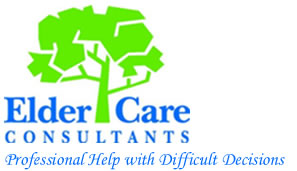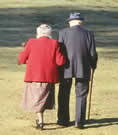7 Stages of Dementia
Experts have documented common patterns of symptom progression that occur
in many individuals with Alzheimer’s disease and developed several methods
of “staging” based on these patterns.
Staging systems provide useful frames of reference for understanding how
the disease may unfold and for making future plans. But it is important to
note that not everyone will experience the same symptoms or progress at the
same rate. People
with Alzheimer’s die an average of four to six years after diagnosis, but
the duration of the disease can vary from three to 20 years.
The framework for this section is a system that outlines key symptoms characterizing
seven stages ranging from unimpaired function to very severe cognitive decline.
This framework is based on a system developed by Barry Reisberg, M.D., Clinical
Director of the New York University School of Medicine’s Silberstein Aging
and Dementia Research Center.
Within this framework, we have noted which stages correspond to the widely
used concepts of mild, moderate, moderately severe and severe Alzheimer’s disease.
We have also noted which stages fall within the more general divisions of early-stage,
mid-stage and late-stage categories.
Stage 1: |
No impairment (normal function) Unimpaired individuals experience no memory problems
and none are evident to a health care professional during a medical
interview. |
Stage 2: |
Very mild cognitive decline (may be normal age-related
changes or earliest signs of Alzheimer's disease) Individuals may feel as if they have memory loss and
lapses, especially in forgetting familiar words or names or the location
of keys, eyeglasses or other everyday objects. But these problems are
not evident during a medical examination or apparent to friends, family
or co-workers. |
Stage 3: |
Mild cognitive decline
Early-stage Alzheimer's can be diagnosed in some, but not all, individuals
with these symptoms Friends, family or co-workers
begin to notice deficiencies. Problems with memory or concentration
may be measurable in clinical testing or discernible during a detailed
medical interview. Common difficulties include:
- Word- or name-finding problems noticeable to family or close associates
- Decreased ability to remember names when introduced to new people
- Performance issues in social or work settings noticeable to family,
friends or co-workers
- Reading a passage and retaining little material
- Losing or misplacing a valuable object
- Decline in ability to plan or organize
|
Stage 4: |
Moderate cognitive decline
(Mild or early-stage Alzheimer's disease) At this stage, a careful medical interview detects
clear-cut deficiencies in the following areas:
- Decreased knowledge of recent occasions or current events
- Impaired ability to perform challenging mental arithmetic-for
example, to count backward from 75 by 7s
- Decreased capacity to perform complex tasks, such as planning
dinner for guests, paying bills and managing finances
- Reduced memory of personal history
- The affected individual may seem subdued and withdrawn, especially
in socially or mentally challenging situations
|
Stage 5: |
Moderately severe cognitive decline
(Moderate or mid-stage Alzheimer's disease) Major
gaps in memory and deficits in cognitive function emerge. Some assistance
with day-to-day activities becomes essential. At this stage, individuals
may:
- Be unable during a medical interview to recall such important
details as their current address, their telephone number or the name
of the college or high school from which they graduated
- Become confused about where they are or about the date, day of
the week or season
- Have trouble with less challenging mental arithmetic; for example,
counting backward from 40 by 4s or from 20 by 2s
- Need help choosing proper clothing for the season or the occasion
- Usually retain substantial knowledge about themselves and know their
own name and the names of their spouse or children
- Usually require no assistance with eating or using the toilet
|
Stage 6: |
Severe cognitive decline
(Moderately severe or mid-stage Alzheimer's disease) Memory difficulties continue to worsen, significant
personality changes may emerge and affected individuals need extensive
help with customary daily activities. At this stage, individuals may:
- Lose most awareness of recent experiences and events
as well as of their surroundings
- Recollect their personal history imperfectly, although they generally
recall their own name
- Occasionally forget the name of their spouse or primary caregiver
but generally can distinguish familiar from unfamiliar faces
- Need help getting dressed properly; without supervision, may make
such errors as putting pajamas over daytime clothes or shoes on wrong
feet
- Experience disruption of their normal sleep/waking cycle
- Need help with handling details of toileting (flushing toilet,
wiping and disposing of tissue properly)
- Have increasing episodes of urinary or fecal incontinence
- Experience significant personality changes and behavioral symptoms,
including suspiciousness and delusions (for example, believing that
their caregiver is an impostor); hallucinations (seeing or hearing
things that are not really there); or compulsive, repetitive behaviors
such as hand-wringing or tissue shredding
- Tend to wander and become lost
|
Stage 7: |
Very severe cognitive decline
(Severe or late-stage Alzheimer's disease) This is the final stage of the disease when individuals
lose the ability to respond to their environment, the ability to speak
and, ultimately, the ability to control movement.
- Frequently individuals lose their capacity for recognizable
speech, although words or phrases may occasionally be uttered
- Individuals need help with eating and toileting and there is general
incontinence of urine
- Individuals lose the ability to walk without assistance, then
the ability to sit without support, the ability to smile, and the
ability to hold their head up. Reflexes become abnormal and muscles
grow rigid. Swallowing is impaired.
|
Source: Alzheimer's Association

